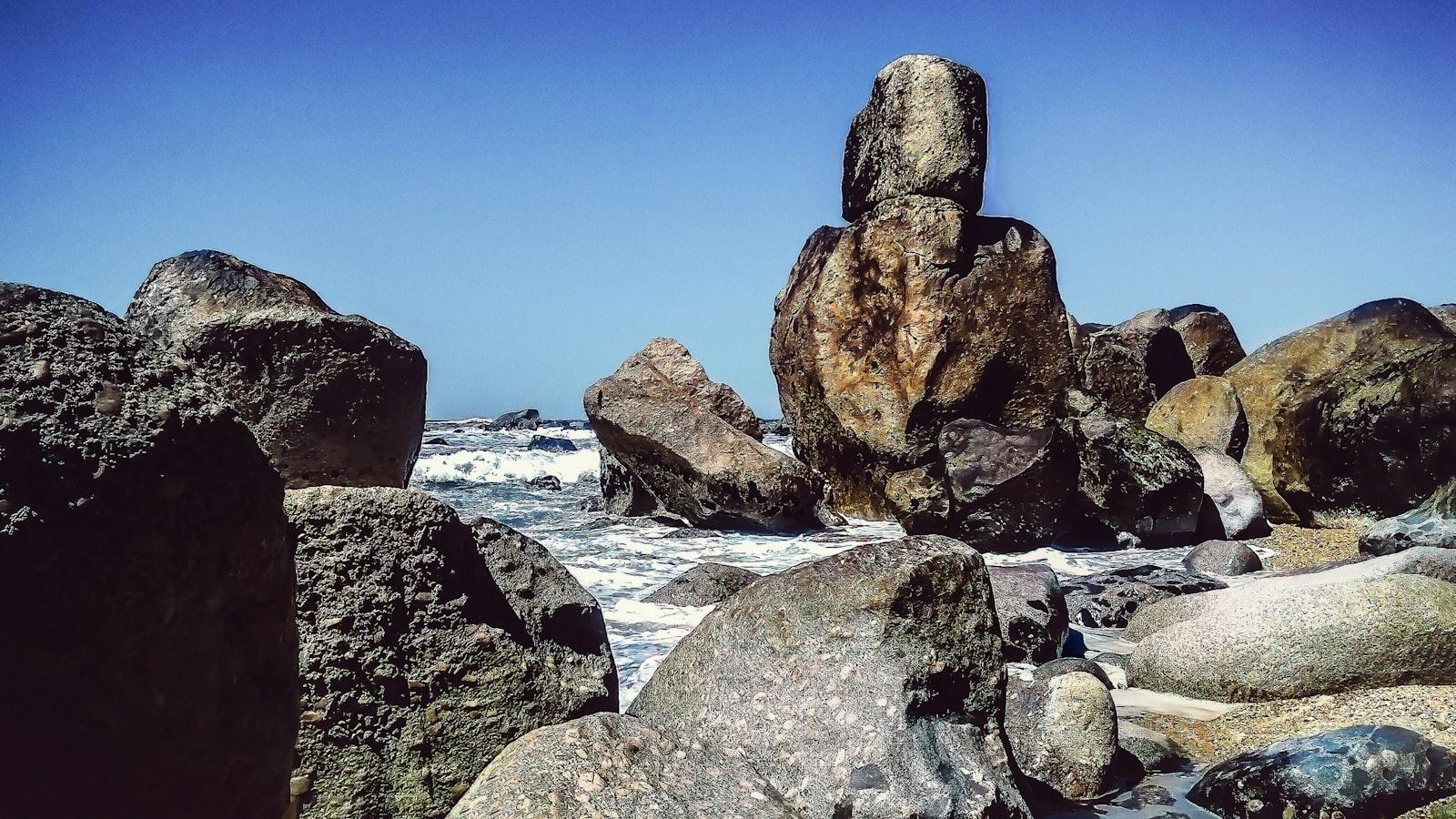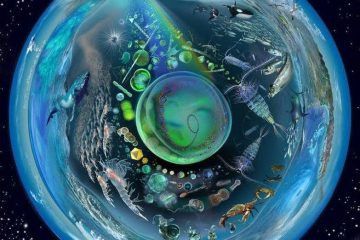Nestled within the hallowed halls of Harvard University lies a theory that connects the intricate web of life on Earth in a profound and captivating way – the Gaia Hypothesis. This fascinating concept challenges conventional wisdom by positing that our planet is a self-regulating system, akin to a living organism. Join us on a journey of discovery as we delve into the depths of the Gaia Hypothesis at Harvard, unraveling its enigmatic layers and exploring the implications it holds for our understanding of the natural world.
Table of Contents
- Understanding the Gaia Hypothesis: A Detailed Analysis
- Harvard’s Contribution to Gaia Hypothesis Research
- Applying Gaia Hypothesis Principles in Modern Environmental Practices
- Recommendations for Further Exploration of the Gaia Hypothesis
- Q&A
- To Wrap It Up
Understanding the Gaia Hypothesis: A Detailed Analysis
Exploring the intricate details of the Gaia Hypothesis can lead to a profound understanding of the interconnectedness between all living organisms and the Earth itself. This holistic approach suggests that the Earth functions as a self-regulating system, maintaining conditions conducive to life through various complex interactions.
<p>Key aspects of the Gaia Hypothesis:</p>
<ul>
<li><strong>Homeostasis:</strong> The concept that Earth's systems work together to maintain stability and balance.</li>
<li><strong>Feedback Mechanisms:</strong> Mechanisms that allow Earth to respond to changes and regulate its environment.</li>
<li><strong>Biotic and Abiotic Factors:</strong> How living organisms and non-living components interact to create a harmonious ecosystem.</li>
</ul>
<table class="wp-block-table">
<thead>
<tr>
<th>Aspect</th>
<th>Description</th>
</tr>
</thead>
<tbody>
<tr>
<td>Homeostasis</td>
<td>Maintains stability and equilibrium</td>
</tr>
<tr>
<td>Feedback Mechanisms</td>
<td>Regulates and responds to environmental changes</td>
</tr>
<tr>
<td>Biotic and Abiotic Factors</td>
<td>Interactions between living and non-living elements</td>
</tr>
</tbody>
</table>
Harvard’s Contribution to Gaia Hypothesis Research
Harvard’s exploration into the Gaia Hypothesis stirs excitement within scientific circles. Researchers at the prestigious university delve into the interconnectivity between organisms and their environment, uncovering fascinating insights that challenge traditional views on Earth’s ecosystems. Through groundbreaking studies and innovative approaches, Harvard pushes the boundaries of ecological understanding, shedding light on the intricate web of life on our planet.
Within Harvard’s scientific community, collaborative efforts thrive, fostering a rich environment for Gaia Hypothesis research. Interdisciplinary teams, comprising biologists, geologists, and environmental scientists, synergize their expertise to unravel the mysteries of Gaia. By integrating diverse perspectives and cutting-edge methodologies, Harvard pioneers new avenues of exploration, igniting a passion for discovery and sparking paradigm shifts in ecological science. The pursuit of knowledge at Harvard transcends boundaries, embracing the complexities of nature to illuminate the interconnected tapestry of life on Earth.
Applying Gaia Hypothesis Principles in Modern Environmental Practices
The Gaia Hypothesis, proposed by James Lovelock and Lynn Margulis, suggests that the Earth functions as a self-regulating system akin to a living organism. Applying this principle in modern environmental practices can revolutionize how we interact with the planet. By recognizing the interconnectedness of all living beings and the environment, we can develop sustainable solutions that benefit both nature and humanity.
Embracing the Gaia Hypothesis involves prioritizing biodiversity conservation, promoting renewable energy sources, and reducing pollution levels. By fostering a harmonious relationship with the environment, we can strive towards a healthy and balanced ecosystem for current and future generations. Incorporating Gaia-inspired strategies in environmental policies and initiatives can pave the way for a more resilient and thriving planet. Let’s work together to preserve and protect our home, Earth.

Recommendations for Further Exploration of the Gaia Hypothesis
Delve deeper into the fascinating world of the Gaia Hypothesis by exploring the following recommendations:
<ul>
<li><strong>Read "Gaia: A New Look at Life on Earth" by James Lovelock</strong> - This groundbreaking book provides a comprehensive overview of the Gaia theory and its implications for our understanding of the Earth as a self-regulating system.</li>
<li><strong>Watch the Documentary "Mother: Caring for 7 Billion"</strong> - Gain insights into the interconnectedness of life on Earth and how human activities impact the delicate balance of the planet.</li>
<li><strong>Attend Online Lectures by Harvard Experts</strong> - Check out Harvard University's online platforms for educational resources related to environmental science and the Gaia Hypothesis.</li>
</ul>Furthermore, consider exploring the Gaia Hypothesis through hands-on activities such as:
<ul>
<li><strong>Joining a Local Ecological Restoration Project</strong> - Experience firsthand the principles of ecosystem balance and resilience by participating in community-based conservation efforts.</li>
<li><strong>Engage in Earth Day Events</strong> - Connect with like-minded individuals who are passionate about environmental sustainability and celebrate the beauty of our planet through educational events and workshops.</li>
</ul>Q&A
**Q&A: Exploring the Gaia Hypothesis at Harvard**
Q: What is the Gaia Hypothesis and how is it connected to Harvard?
A: The Gaia Hypothesis proposes that Earth functions as a self-regulating organism, named after the Greek goddess Gaia. At Harvard, researchers have delved into this intriguing concept to understand Earth’s intricate systems better.
Q: How does the Gaia Hypothesis impact current environmental studies?
A: By viewing the Earth as a living, self-regulating entity, the Gaia Hypothesis challenges traditional scientific perspectives and encourages a holistic approach to environmental research at Harvard and beyond.
Q: What role does Harvard play in advancing Gaia Hypothesis research?
A: Harvard’s academic environment fosters cutting-edge research that pushes the boundaries of scientific knowledge, making it a hub for pioneering studies on topics like the Gaia Hypothesis and its implications for our planet.
Q: Are there any notable Gaia Hypothesis projects or initiatives at Harvard?
A: Harvard researchers are engaged in various projects exploring the interconnectedness of Earth’s systems, investigating how humanity can coexist sustainably with our planet, inspired by the principles of the Gaia Hypothesis.
Q: How can the Gaia Hypothesis influence our understanding of Earth’s ecosystems?
A: By promoting the idea that Earth operates as a complex, interdependent system, the Gaia Hypothesis underscores the importance of preserving biodiversity and fostering harmony between humans and nature, a key focus at Harvard.
Q: What future developments can we expect regarding the Gaia Hypothesis at Harvard?
A: With ongoing research and interdisciplinary collaborations, Harvard is poised to continue unraveling the mysteries of the Gaia Hypothesis, shedding light on how we can protect and coexist with our planet in a more sustainable way.
To Wrap It Up
As we close the chapter on exploring the fascinating realms of the Gaia Hypothesis and its impact on environmental studies at Harvard, it becomes evident that the interconnectedness of all living beings with our planet is a concept worth pondering. The intricate dance between Earth and its inhabitants, as proposed by the Gaia theory, offers a profound reflection on the delicate balance we must strive to maintain for the well-being of our home. May the wisdom gained from this exploration guide us towards a more harmonious coexistence with Mother Earth. Let’s continue to nurture our curiosity, delve deeper into understanding our place in the intricate web of life, and embrace the responsibility we hold as stewards of this precious planet.



0 Comments